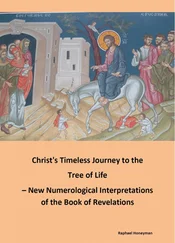Clement Attlee’s final words to the 1951 Labour Party conference, three weeks before the Conservatives were returned to power
And so it was that, by the time they took the bunting down from the streets after VE-Day and turned from the war to the future, the British in their dreams and illusions and in their flinching from reality had already written the broad scenario for Britain’s postwar descent … As that descent took its course, the illusions and the dreams of 1945 would fade one by one – the imperial and Commonwealth role, the world-power role, British industrial genius, and, at the last, New Jerusalem itself, a dream turned to a dank reality of a segregated, subliterate, unskilled, unhealthy and institutionalised proletariat hanging on the nipple of state maternalism.
Correlli Barnett, The Audit of War, p. 340
By 1951, a plausible updated version of a land fit for heroes had been built on the scarred foundations of an ancient, war-ravaged community. From 1945–51 onwards, Labour’s central political faith, its prime claim to be the unique custodian of the progressive idea, lay with its inextricable identification with the rise and decline of the welfare state.
Kenneth O. Morgan, Labour in Power, p. 187
It was decency socialism, very Clem Attlee – fair play, fair chances, fair shares and co-operative conduct.
Neil Kinnock, interview, 1993
The Labour government which was swept to power in the summer of that year [1945] had, in the fields of social reform and reconstruction, only to complete the work which the Coalition had begun and in some cases bring forward Bills already drafted.
R. A. Butler, The Art of the Possible, p. 125
TO THE QUESTION, ‘Would there have been a welfare state if the Conservatives had won in 1945?’, the answer is plainly yes. There was by then a consensus that there would, even if the phrase itself, popularised by Archbishop Temple, 1was only slowly entering common parlance. At the simplest level, it is tempting to point merely to the three ‘Bs’ – Beveridge, soon to become a Liberal MP, devising social security, the Conservative Butler producing the Education Act, and the Labour Bevan founding the NHS – as answer enough.
The reality, of course, is more complex. It was none the less the coalition’s Education Act, drawn up by the Conservative Butler, which Labour implemented. Equally, despite alarm about the cost, there would have been Conservative social security provisions along the Beveridge lines. The Family Allowances Act had already been passed. The wartime coalition had agreed that phasing in pensions over twenty years was not politically tenable. Jim Griffiths’s Bills went through the Commons with Conservative assent and barely a dissenting voice. He had found drafts of them on taking office, which he modified but did not alter fundamentally. It is entirely possible that a Conservative government would have backed away from some of the social security compromises it had made with its Labour and Liberal partners in coalition, just as Willink, in the interregnum between the coalition and Labour’s victory, further modified the NHS proposals. 2Benefit rates might well have been less generous. But the broad structure is unlikely to have been radically different. The insurance base was acceptable to the Conservatives in coalition and there is little or nothing to suggest the system would have been much more selective, or less universal.
There would, too, have been a National Health Service, free at the point of use. That was coalition policy and remained Willink’s stance. Guy Dain, the chairman of the BMA’s council, told a secret session of its representative body in May 1945 that an ‘all-in’ NHS appeared to be the unanimous policy not just of the then government, but of Parliament. 3The NHS would have looked very different. Even though Willink in a 1962 health service debate was generous enough to declare that ‘this is an opportunity for me to admit that in my view the Labour government was right when it undertook the daunting step of taking over 1334 voluntary and 1771 municipal hospitals’, 4it remains difficult to see a Conservative Government nationalising the hospitals in the way Bevan engineered. The alternative creation might not have worked as well as the NHS, the range of services might have been less comprehensive and it is impossible to see what different compromises a Conservative government would have forged with the doctors. But even Bevan (in his more emollient moods when he was not calling the Tories ‘vermin’) was prepared to admit that ‘every party made its contribution’ to the NHS, 5while Attlee went out of his way to stress the cross-party nature of the measure on vesting day in 1948.
The White Paper Employment Policy had been a coalition effort and had defined a government commitment to ‘high and stable’ employment, even if the tools it adumbrated required further development. Even in housing, the coalition was already heavily involved and a Conservative administration would have had to be even more so, given the immense legacy of wartime damage and the demographic and electoral pressures. Local authorities would not have been chosen as almost the sole source of supply, as they were in the early years of the 1945 government: controls on private house building were gradually eased in the years to 1951. But in the past Conservative governments had put money into council houses and Macmillan was to use them as a major tool in his housing drive.
Butler, in arguing that Labour had only to complete the work of coalition, greatly overstates the case. But it is plain that the welfare state was in the making well ahead of 1945. Some of this is just the force of history. Modern welfare states of widely differing design in their details emerged at varying rates, but in general rapidly, across the rest of the industrialised world after 1945. Modern industrial societies have to have them. They all, like the UK, had been developing them before the Second World War.
At the most naïve level, once rural economies break up and money rather than barter or labour, in return for shelter, protection and care, becomes the dominant means of exchange, societies have to make some collective provision in cash and kind unless they are prepared to let the weakest literally go to the wall. The rural economy with extensive family networks can cope up to a point even with the village idiot, exchanging food and shelter for whatever limited work can be done. The modern cash economy is largely denied that option. It has to provide benefits, in cash or kind, paid for collectively by those who do not know the recipients, unless it is prepared to see people starve or die unnecessarily.
Of course Britain’s welfare state, like those in the rest of Europe, was created as much more than just a rescue system for the weak. They all dramatically brought the middle classes and above into the net – indeed, that is one of the defining shifts of the 1940s. In Britain it meant that the middle class no longer had to pay the market cost of private health care or take out private insurance. No longer did they have to pay school fees. Their children came to receive maintenance grants at university, and it was disproportionately their children who reached university. Indeed it is the huge middle-class stake in ‘free’ education and health care that have made those the most enduring and popular features of the welfare state. The middle class, like everyone else, also received maternity benefits and family allowances, along with the prospect of a state pension and a death grant of a size that at the time would buy a basic funeral. These cash benefits, however, were flat-rate and so were relatively less important to them than to the less well off. Although they had a stake in social security, it was a lesser stake than in education and health – one factor which may help to explain the slowly growing scepticism over social security in a society which progressively became more middle class with a shrinking labouring class. But if the welfare state gave the middle class a major shareholding, it also produced a significant transfer of resources from the better off to the less well off. As importantly, and arguably even more importantly, it shifted resources between the generations at key moments in life. People paid taxes in middle life when in work, and in return were helped with their children’s upbringing and education, were guaranteed help when sick, and were assisted in old age when earning ceased. There was therefore, and remained, a widespread vested interest – or, to put it more kindly, a mutual interest – in the welfare state, on top of the ‘never again’ revulsion felt over the effects of the 1930s depression.
Читать дальше
![Nicholas Timmins The Five Giants [New Edition]: A Biography of the Welfare State обложка книги](/books/701739/nicholas-timmins-the-five-giants-new-edition-a-cover.webp)











